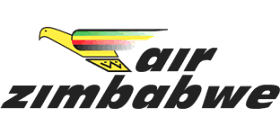 Zimbabwe’s Unused Boeing 777s Poised for Rebirth with New African Airline Venture
Zimbabwe’s Unused Boeing 777s Poised for Rebirth with New African Airline Venture
The narrative of Air Zimbabwe’s two Boeing 777-200ER aircraft—acquired in 2020 yet never put into commercial service—may soon take an exciting turn, as a fresh player emerges on the African aviation scene. These wide-body jets, which have been grounded and idle for years, are set to breathe new life into the continent’s long-haul connectivity if current plans come to fruition. The up-and-coming Transvaal Africa Airlines (TAA), a start-up nurtured by Boeing’s StartupBoeing programme, is preparing to welcome these aircraft into its fleet, with the aim of commencing operations in the final quarter of 2025.
This development signals a significant step for Zimbabwe’s aviation sector and opens new possibilities for air connectivity across sub-Saharan Africa. The story of these 777s has long been emblematic of underutilized aviation assets in the region. Their potential deployment by a new operator could mark a turning point, not only unlocking value for Zimbabwe but also creating fresh opportunities for the wider African travel industry.
The Transvaal Africa Airlines initiative is notable for its ambitious vision and strategic backing. With the support of Boeing’s StartupBoeing programme, TAA is leveraging industry expertise and technical guidance to ensure a robust market entry. This partnership highlights a growing trend in African aviation: the collaboration between global aircraft manufacturers and local start-ups to bridge capacity gaps and introduce modern, fuel-efficient fleets tailored for Africa’s unique market dynamics.
Bringing these 777-200ERs out of storage and into active service is expected to have ripple effects throughout the region. The aircraft are well-suited for long-haul routes, offering substantial passenger and cargo capacity that can support direct connections between Africa and key international markets. For African tourism operators, hospitality providers, and infrastructure developers, this expansion in wide-body operations presents an opportunity to attract new visitor segments and foster greater cross-continental business ties.
The anticipated launch in the fourth quarter of 2025 aligns with a period of renewed optimism for the African air transport sector. As travel demand rebounds, the introduction of reliable, high-capacity jets can help address current bottlenecks, such as limited frequencies and restricted intercontinental options. The deployment of the 777s by TAA also suggests a future in which African carriers play a more prominent role in shaping the continent’s global air links, reducing reliance on foreign operators and boosting local expertise.
Transvaal Africa Airlines’ entry comes at a time when African aviation is witnessing heightened interest from investors and international partners. The StartupBoeing programme’s involvement not only brings operational know-how but also underscores confidence in the region’s long-term potential. Such partnerships can accelerate the professionalization and modernization of African airlines, ensuring they meet international standards for safety, efficiency, and passenger experience.
The successful integration of Air Zimbabwe’s 777s into TAA’s fleet could also set a precedent for the optimal use of dormant assets elsewhere on the continent. Many African carriers own aircraft that remain grounded due to various financial or operational challenges. By repurposing and reactivating these planes, airlines can quickly grow their networks and respond to evolving market trends without waiting years for new deliveries.
For the broader African tourism and business travel ecosystem, the reactivation of these 777s is likely to have tangible benefits. Improved air links facilitate not only easier movement for leisure and corporate travelers but also broader trade and investment flows. Increased capacity can support the ambitions of African destinations to attract more high-spending visitors and host international events, while also enabling the export of perishables and manufactured goods to distant markets.
As Transvaal Africa Airlines moves closer to operational readiness, all eyes will be on the routes it selects and the partnerships it forges across the continent. The airline’s success could encourage further innovation within the African aviation landscape, prompting other start-ups and established players alike to explore new models of fleet renewal and strategic collaboration. The involvement of Boeing as an advisor and enabler adds a layer of credibility and technical assurance, which will be closely watched by regulators, investors, and passengers alike.
The revival of Air Zimbabwe’s Boeing 777s through the vision of TAA exemplifies the growing momentum behind African-led aviation solutions. It reflects an industry embracing change, seizing opportunities to transform dormant resources into engines of economic growth. For Africa’s travel sector, this bold move underscores the importance of fostering homegrown initiatives and building partnerships that can drive sustainable expansion in the years ahead.
